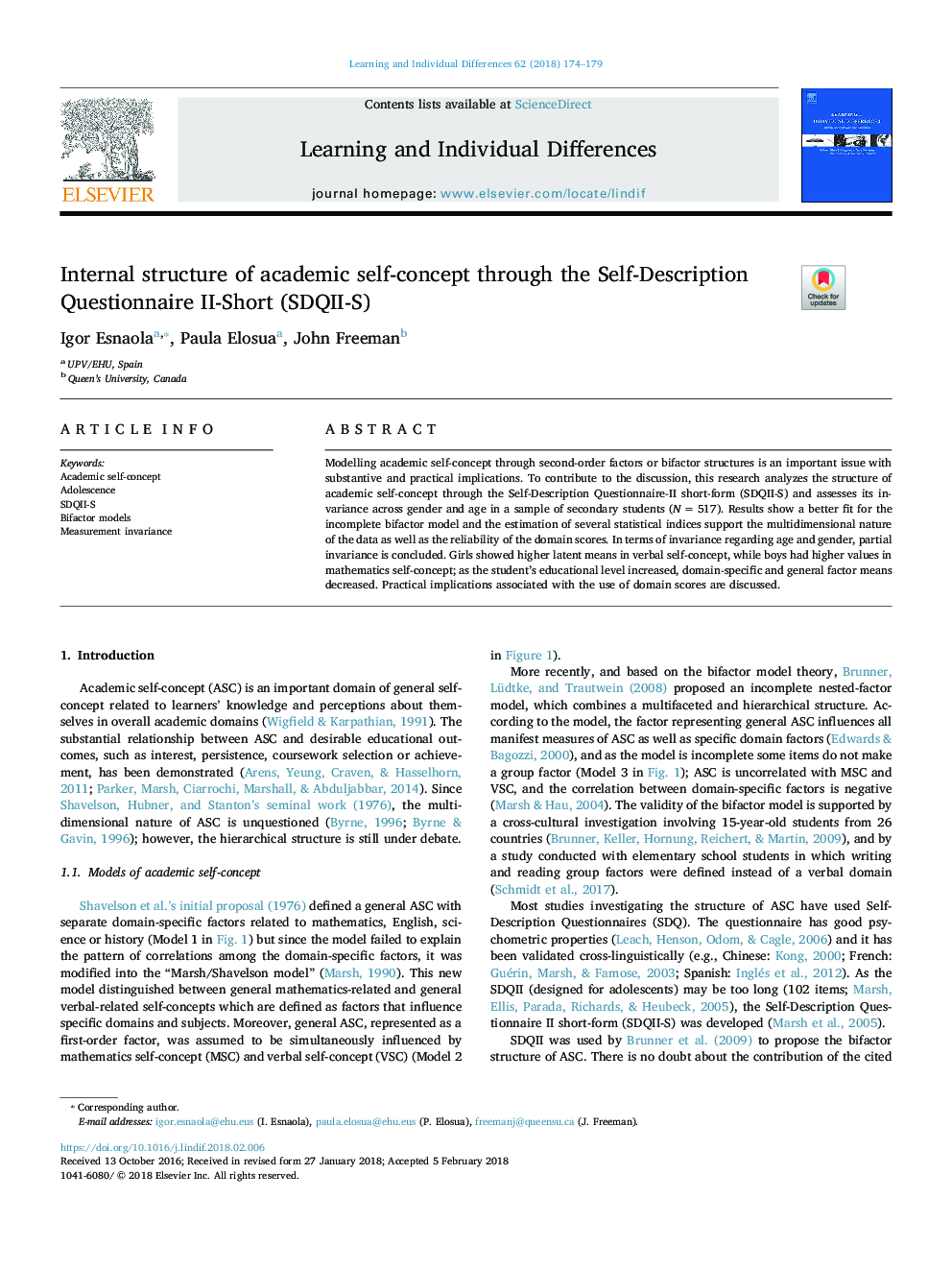| Article ID | Journal | Published Year | Pages | File Type |
|---|---|---|---|---|
| 6844481 | Learning and Individual Differences | 2018 | 6 Pages |
Abstract
Modelling academic self-concept through second-order factors or bifactor structures is an important issue with substantive and practical implications. To contribute to the discussion, this research analyzes the structure of academic self-concept through the Self-Description Questionnaire-II short-form (SDQII-S) and assesses its invariance across gender and age in a sample of secondary students (Nâ¯=â¯517). Results show a better fit for the incomplete bifactor model and the estimation of several statistical indices support the multidimensional nature of the data as well as the reliability of the domain scores. In terms of invariance regarding age and gender, partial invariance is concluded. Girls showed higher latent means in verbal self-concept, while boys had higher values in mathematics self-concept; as the student's educational level increased, domain-specific and general factor means decreased. Practical implications associated with the use of domain scores are discussed.
Related Topics
Social Sciences and Humanities
Psychology
Developmental and Educational Psychology
Authors
Igor Esnaola, Paula Elosua, John Freeman,
